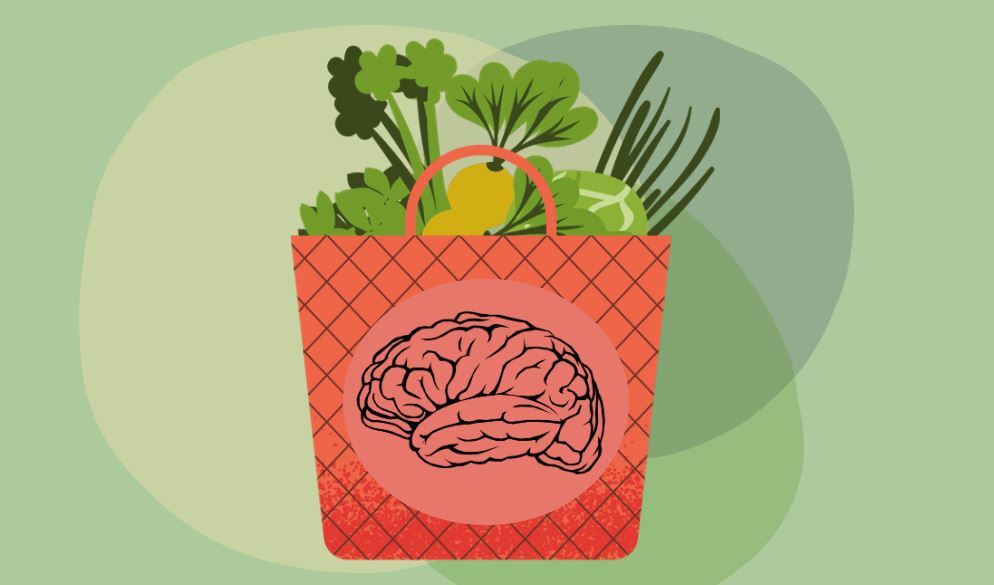
U of C professor on the critical role nutrition plays in improving mental health
By Lauren Brough, January 18 2022—
A research psychologist at the University of Calgary proves physical health isn’t the only reason to start paying more attention to diet. Dr. Bonnie Kaplan, a professor emerita in the Cumming School of Medicine spent the bulk of her career researching the role nutrition has on brain development and function.
In an interview with the Gauntlet, Kaplan spoke about how improvements in diet can drastically improve and prevent mental health conditions. Kaplan has also recently co-authored the book, The Better Brain: Overcome Anxiety, Combat Depression, and Reduce ADHD and Stress with Nutrition.
“If you want a happy life you have to really protect and feed your brain,” said Kaplan.
Countless studies have shown a direct correlation between mental health and nutrition. Specifically, a notable study from the University of Alberta conducted on over 3,000 children in grade five shows the impact that their diet has on the state of their mental well-being over time, proving diet to be a causal factor of negative mental health symptoms.
“Nutrition statistically and clinically proves improvement in mental health,” said Kaplan.
“We were taught to eat a healthy diet so that you’ll have strong bones and muscles,” Kaplan continued. “Nobody tells you that the most metabolically demanding organ in your body is not your bones and muscles, but your brain is the one you’re mostly feeding.”
As psychiatric medication use becomes more widely spread than ever, so do the many mental illnesses they’re prescribed to treat.
“It’s an era of magic bullet thinking,” said Kaplan. “We certainly turn to pharmaceuticals and the pharmaceutical companies are happy to accommodate us. There is a totally legitimate place for psychiatric medications, it’s just that they should not be the first treatment.”
Brain metabolism refers to how the brain breaks down the nutrients individuals consume into things like serotonin and dopamine.
“What every university could be doing better is not only providing better food but teaching people why it matters,” said Kaplan.
The micronutrients one receives from consuming fruits and vegetables are not only fundamental for physical health, but also mental health.
“One of the reasons we wrote the book is to teach people why they need to pay attention to their nutrition,“ Kaplan said. “Because you’re not going to change habits until people know why.
“If you want adequate energy for all of the physiological processes that are going on in your body every minute of every day and night, you need to be feeding your mitochondria nutrients,” she continued. “If you’re feeling chronically low in energy, look at your diet.”
Students can still increase their nutrition while on a budget. According to Kaplan, when it comes to eating on a budget planning skills are important. By planning meals ahead of time, individuals are less likely to rely on ultra-processed food from the corner store or vending machine.
“There’s a myth that people are eating ultra-processed stuff because it’s cheaper,” Kaplan said. “There was an Australian study that showed that people actually save 20 per cent of their food budget when they learn to cook with inexpensive, good, healthy food.”
Kaplan highlighted that when often fresh produce can be costly, things like canned legumes and frozen vegetables are also healthy alternatives that don’t break the bank.
The research shows that improving your nutrition will in turn also improve your ability to cope.
“It’s shown after earthquakes, after the Alberta flood and also after the mosque massacres in New Zealand, that people’s ability to cope with those stressors, which could not be taken away, but their ability to feel less depression and anxiety was very much improved in four to six weeks,” said Kaplan “The data is there, we just need to educate the public.”
The Mediterranean diet is what Kaplan and co-author Dr. Julia Rucklidge recommend in their book The Better Brain, which is rich in fresh fruits, vegetables, nuts and seeds.
“You cannot live on ramen and soda,“ said Kaplan.
To learn more about micronutrients and how they interact with the metabolism of the brain Kaplan encourages watching an explanatory video called How Nutrients Control Brain Synthesis and Metabolism of Neurotransmitters.
To learn more about Kaplan and her research, visit bonniejkaplan.com.
